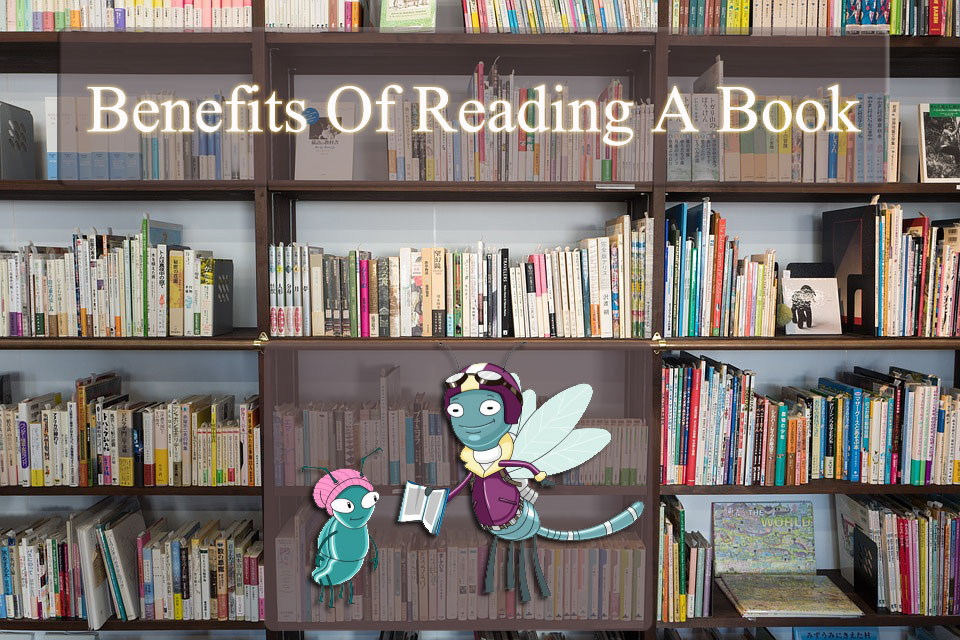Benefits Of Reading A Book

‘Books are the quietest and most constant of friends; they are the most accessible and wisest of counselors, and the most patient of teachers’. – Charles W. Elio
A child’s reading skills are important to their success in school as they will allow them to access the breadth of the curriculum and improve their communication and language skills. In addition, reading can be a fun and imaginative time for children, which opens doors to all kinds of new worlds for them.
As parents, we all want the best for our children. We’re probably all aware that it’s important to make sure they are confident, fluent readers who enjoy reading, but often it’s hard to know where to start.
Should you read to your baby? What can you do to help get your children familiar with words and reading before school? And how do you help them progress at school when the teaching is different nowadays?
Why is reading so important?
Studies show that reading for pleasure makes a big difference to children’s educational performance. Likewise, evidence suggests that children who read for enjoyment every day not only perform better in reading tests than those who do not but also develop a broader vocabulary, increased general knowledge, and a better understanding of other cultures.
In fact, reading for pleasure is more likely to determine whether a child does well at school than their social or economic background.
What difference can I make as a parent?
You can make a huge difference! Parents are the most important educators in a child’s life – even more important than their teachers – and it is never too early to start reading together.
Even before they were born, babies learn to recognize their parents’ voices. Reading to your baby from birth, even for just a few minutes a day, gives them the comfort of hearing your voice and increases their exposure to the language.
Building vocabulary and understanding
Learning to read is about listening and understanding as well as working out what is printed on the page. Through hearing stories, children are exposed to a wide range of words. This helps them build their own vocabulary and improve their understanding when they listen, which is vital as they start to read. It is important for them to understand how stories work too. Even if your child does not understand every word, they will hear new sounds, words, and phrases which they can then try out, copying what they have heard.
Irrespective of whether your child is only just beginning to learn to read or whether they are fluent, you can play an important role in helping to keep them interested in books. Find out what interests them, help them to find books that will be engaging and fun, and spend time reading the books they bring home from school together.
Read with your child
For most of us, reading aloud isn’t part of everyday life, so the thought of reading a story to your child may be a bit daunting. But don’t let this put you off – your children will be enjoying themselves too much to criticize your performance!
To a young baby, ‘reading’ means holding them in your arms, exploring a soft book.
• Start reading with your baby when they are around three months old. Remember that for babies reading is like play – let them wave the book around.
• Once your baby sits up, choose light, sturdy board books with rounded corners, bright pictures, and textures to feel. From six months, babies love lift-the-flap books. From nine months, introduce noisy sound books. Be guided by what makes reading fun for you both.
• Use the pictures as well as the words. Babies learn by doing: as the baby reaches for the pictures, say the words to help build vocabulary. Be relaxed about what books mean to a baby – a five-minute bouncy sing-song game with an open book is still reading!
How should I read to my child?
• As you read to your child, bring the characters to life – talk about the characters, the drawings, and the events so that the story starts to come alive.
• Don’t be afraid to try different voices or try out your acting skills. While you may not win an Oscar, your child will enjoy your performance and appreciate the story even more.
• Remember that your face says it all – so exaggerate your normal expression times three like a children’s TV presenter: children will love it.
• Emphasize repeated words and phrases (‘the big bad wolf ’; ‘… blew, and blew, and blew the house down’). In this way, your child starts to learn the language used in books. Encourage your child to say the words with you.
• Turn off the television and concentrate on enjoying the book.
• Try audiobooks that children can listen to on the car stereo, on computers, or phones – this is a great way to build a child’s understanding of stories and improve their listening.
Top 10 tips to help children enjoy reading
To help make reading enjoyable and fun, we asked experts and authors what they recommend to help get kids reading.
1. Make books part of your family life – Always have books around so that you and your children are ready to read whenever there’s a chance.
2. Join your local library – Get your child a library card. You’ll find the latest video games, blue-rays, and DVDs, plus tons and tons of fantastic books. Allow them to pick their own books, encouraging their own interests.
3. Match their interests – Help them find the right book – it doesn’t matter if it’s fiction, poetry, comic books or non-fiction.
4. All reading is good – Don’t discount non-fiction, comics, graphic novels, magazines, and leaflets. Reading is reading and it is all good.
5. Get comfortable! – Snuggle up somewhere warm and cozy with your child, either in bed, on a beanbag or on the sofa, or make sure they have somewhere comfy when reading alone.
6. Ask questions – To keep them interested in the story, ask your child questions as you read such as, ‘What do you think will happen next?’ or ‘Where did we get to last night? Can you remember what had happened already?’
7. Read whenever you get the chance – Bring along a book or magazine for any time your child has to wait, such as at a doctor’s surgery.
8. Read again and again – Encourage your child to re-read favorite books and poems. Re-reading helps to build up fluency and confidence.
9. Bedtime stories – Regularly read with your child or children at bedtime. It’s a great way to end the day and to spend valuable time with your child.
10. Rhyme and repetition – Books and poems which include rhyme and repetition are great for encouraging your child or children to join in and remember the words.
Suggested Read: 16 Dystopian Reads You Must Try






